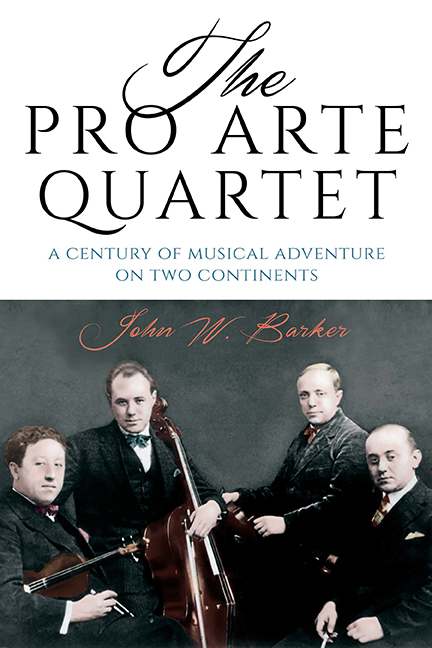Book contents
- Frontmatter
- Dedication
- Contents
- Preface
- Lists of Quartet Membership
- Introduction: Quartet Contexts
- 1 The Onnou Years, I (1912–31)
- 2 The Onnou Years, II (1932–40)
- 3 The Brosa Years (1940–44)
- 4 The Kolisch Years (1944–67)
- 5 The Paulu Years, I (1967–79)
- 6 The Paulu Years, II (1979–95)
- 7 The Perry Years (1995–Present)
- Conclusion: Retrospect and Prospects
- Appendixes
- Selected Bibliography
- Index A Composers
- Index B General
5 - The Paulu Years, I (1967–79)
Published online by Cambridge University Press: 10 June 2021
- Frontmatter
- Dedication
- Contents
- Preface
- Lists of Quartet Membership
- Introduction: Quartet Contexts
- 1 The Onnou Years, I (1912–31)
- 2 The Onnou Years, II (1932–40)
- 3 The Brosa Years (1940–44)
- 4 The Kolisch Years (1944–67)
- 5 The Paulu Years, I (1967–79)
- 6 The Paulu Years, II (1979–95)
- 7 The Perry Years (1995–Present)
- Conclusion: Retrospect and Prospects
- Appendixes
- Selected Bibliography
- Index A Composers
- Index B General
Summary
Regrouping
With the departures of both Rudolf Kolisch and Won-Mo Kim by summer 1967, only Richard Blum and Lowell Creitz were survivors of the previous quartet configuration. The obstacle of Kolisch's withdrawal since 1962 while still a faculty member was now removed. The issue of what to do when a quartet member became disaffected but remained as a faculty member was bypassed for now—though it would arise disastrously once more in years ahead. At this point, meanwhile, the temporary façade of the “UW Piano Quartet” as a device of continuity was no longer needed. The School of Music, in a new phase of expansion of its performing faculty, was ready and willing to reinstate the Pro Arte Quartet by appointing new occupants for the two violin chairs.
The new first violinist was Norman Paulu. Born in 1929, in Cedar Rapids, Iowa, he had the famous Joseph Szigeti among his teachers. Paulu had played in the 7th Army Symphony Orchestra at the same time as had Richard Blum, so there was a personal link between them. Paulu had professional experience in both orchestral and chamber playing. He had been concertmaster of the Oklahoma City Symphony; and he would repeat that role for a few years with the Madison Symphony Orchestra. He had also been first violinist of the Lyric Quartet of Oklahoma.
The new second violinist was Thomas Moore. Born in 1938 of a musical family, he received his training at the Eastman School of Music. His experience likewise included both orchestral and chamber playing. Early on, he had used a research grant to study the music of Schoenberg, Berg, and Webern in Vienna with Rudolf Kolisch, during one of the latter's teaching stints there—giving Moore at least an indirect connection to the Pro Arte traditions.
For the first time in their history, the Pro Arte Quartet now had a team of players all born in the United States, none of them in Europe. What that would mean in their evolution was not immediately clear, nor would it be for some time. Reacting to Kolisch's background exclusively in chamber music playing, Paulu wanted to use his orchestral experience to bring a fuller, more rounded sonority to the Pro Arte's playing.
- Type
- Chapter
- Information
- The Pro Arte QuartetA Century of Musical Adventure on Two Continents, pp. 166 - 186Publisher: Boydell & BrewerPrint publication year: 2017



